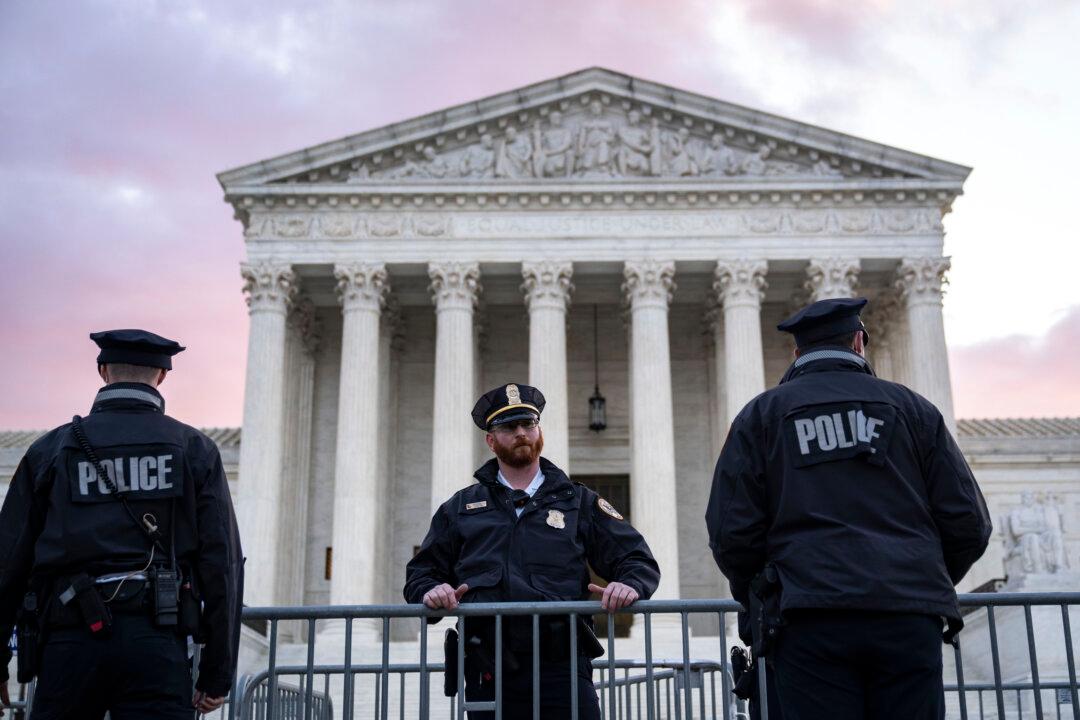The U.S. Department of Homeland Security (DHS) has reportedly issued a memo to warn that government officials and judges could be at risk by violent extremists after the Supreme Court overturned Roe v. Wade on Friday.
Government officials and judges “probably are at most risk for violence in response to the decision," according to the memo, obtained by Axios and CNN. The warning was reportedly sent to DHS personnel, law enforcement, first responders, and private sector partners.





